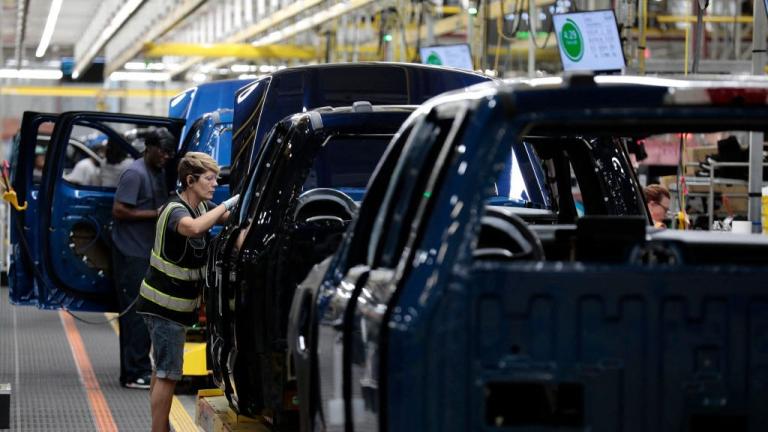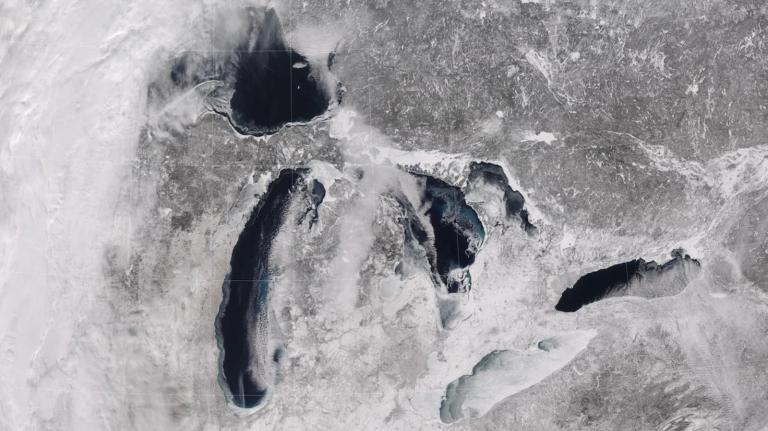Enviros are scrambling for ringside seats to the California gubernatorial race, poised to become a green mêlée of WrestleManian proportions. In one corner of the ring is Arnold “The Governator” Schwarzenegger (R); in the opposite corner, his newly designated Democratic opponent, Phil “State Treasurator” Angelides. Each will try to use his formidable environmental record to put his opponent in a half nelson.
Already Schwarzenegger is touting his environmental achievements and revving up his bright-green campaign bus, complete with a Yosemite National Park vista painted on its flanks. (If you suspect this is an attempt to dissociate himself from other not-so-green members of his party, well, the governor is happy to confirm your suspicions: “You don’t see that bus saying, VOTE FOR ARNOLD SCHWARZENEGGER, REPUBLICAN,” he recently told Newsweek.)
Meanwhile, Angelides and his top aides are vowing to deal The Governator’s eco-cred a mortal blow: “We are going to peel the green paint off of that bus — every last square inch of it — until it’s a pile of rust come November,” Bob Mulholland, the candidate’s senior campaign adviser, told Muckraker. “Just you watch: There will be no real environmental group that endorses Schwarzenegger. Every single one of them will be on our side.”
That’s some bold bluster given that Schwarzenegger has built up a strong national reputation for his pro-environment agenda, applauded in publications from The Wall Street Journal to Rolling Stone. His most popular moves among enviros include an executive order he signed last June setting targets for California to cut its greenhouse-gas emissions 80 percent below 1990 levels by 2050, and his efforts to implement the state’s Detroit-opposed clean-car bill, which mandates that new cars and light trucks sold in the Golden State emit fewer greenhouse-gas emissions starting in the 2009 model year.
Enviros also laud Schwarzenegger for, among other things, signing legislation to protect a 25-million-acre area in the Sierra Nevada Mountains, boosting funding for enforcement efforts against corporate polluters, and pushing through a version of his Million Solar Roofs initiative, which commits the state to an 11-year subsidy plan to stimulate purchase of solar systems for residential and commercial buildings.
“Schwarzenegger and his staff deserve lots of applause for their renewable-energy initiatives,” said David Hochschild, policy director of PV Now, a California-based group that advocates solar energy. “Few other Republican governors — or governors in general — have been pushing the climate issue as much.”
National green leaders have also praised his efforts. David Hawkins, climate director for the Natural Resources Defense Council, told Rolling Stone last year that Schwarzenegger “belongs in the sparsely populated top tier of elected officials who are not only taking global warming seriously but devising solutions on a scale that actually matches the problem.” In an interview this week with the Associated Press, Sierra Club Executive Director Carl Pope credited Schwarzenegger for supporting caps on greenhouse-gas emissions (even as he said his group would endorse Angelides).
Schwarzenegger made headlines last week for his green leadership at a meeting of the Western Governors Association, where he chided his colleagues for making only symbolic pledges to fight the climate crisis. “On global warming, we still come up short,” the governor said. “We’ve made progress in everyone agreeing it’s a serious problem. But unless we set specific goals and targets with specific ways to measure our performance, a resolution won’t mean very much.”
Less Than Meets the Eye?
That’s just the sort of criticism Angelides and a number of California environmental leaders are levying against Schwarzenegger himself: that his environmental record is more symbolic than substantive.
Said Rico Mastrodonato, Northern California director of the California League of Conservation Voters, “Schwarzenegger has a mixed record that’s riddled with contradictions. One day he promotes himself as a climate leader, the next day he fails to support measures that would curb greenhouse gases.”
In 2004 and 2005, CLCV gave the governor’s record on the environment a surprisingly low rating of 58 percent. “Where I’m from that’s a failing grade,” said Mastrodonato, “but among Republicans in this state — most of whom have ratings of 4 and 5 percent — Schwarzenegger comes out looking like the second coming of John Muir.”
One notable blunder, according to Sierra Club California attorney Bill Magavern, was Schwarzenegger’s decision to veto a bill that would have reduced air pollutants at California’s two busiest shipping ports. Green activists also criticized the governor’s support of industry-backed Proposition 64, approved by voters in 2004, which makes it harder for citizens to sue companies that exceed pollution limits or violate other state rules.
“Whenever there is an environmental proposal that the Chamber of Commerce says will threaten job growth, Schwarzenegger votes against it,” said Mastrodonato.
Earlier this month, the governor fed that argument more ammunition when he came out against a ballot initiative that would impose a new extraction tax on oil companies operating in California and use the revenue — estimated at $200 million to $380 million annually — for research and development into clean energy. (Angelides publicly endorsed the ballot measure.)
“Governor Schwarzenegger believes oil companies should invest their profits in developing fuel alternatives, but he opposes tax increases on the people of California,” explained his campaign spokesperson Julie Soderlund. She said his opposition to the ballot initiative doesn’t detract from his overall environmental record: “Time and again he has proved his commitment to reducing California’s oil use and ramping up alternative-fuel development with bold targets, efficiency programs, investments, and incentives.”
Avenging Angelides
By most accounts, Angelides has a strong environmental record. As state treasurer, he pioneered the Green Wave initiative, which invested $1.5 billion of the state’s pension funds into clean-energy projects and eco-friendly companies; he’s also invested heavily in smart-growth development and brownfield rehabilitation.
Angelides’ environmental platform has two main components: A plan to permanently ban oil and gas drilling off the California coast and restore funding for the protection and cleanup of coastal waters, and a plan to cut gasoline and diesel-fuel use in the state by 25 percent within a decade by promoting biofuels, pushing smart growth, and taking other steps.
The Schwarzenegger camp is not impressed. “It’s interesting that Angelides has this newfound interest in the environment,” said Soderlund. “I don’t think his record begins to compare to the concrete and far-reaching steps the governor has taken on every level — conserving vast tracts of wilderness, fighting global warming, advocating alternative fuels and energy sources, and improving efficiency and enforcement. We are confident that voters will recognize the governor’s strong leadership on these issues.”
Enviros, however, say it won’t be easy to sully or dismiss Angelides’ green record. When Steve Westly, his opponent in the Democratic primary, claimed Angelides had, while working as a private-sector developer, supported real-estate projects that ruined wetlands and dumped illegally in Lake Tahoe, Sens. Barbara Boxer and Dianne Feinstein jumped to his defense, publicly disavowing these claims alongside local green groups.
Sierra Club California, like the national Sierra Club, has endorsed Angelides. “Schwarzenegger has done some laudable work on the environment, but we believe Angelides could do a lot better,” said Magavern. And though the CLCV hasn’t yet announced its endorsement, it’s highly likely to lean leftward.
Angelides’ staffers say he will go after Schwarzenegger’s environmental record, professionally and personally. “The man’s claim to fame was playing a cyborg. He’s got seven Hummers and has publicly admitted to keeping his thermostat at 60 degrees in the summertime, so that he can keep a fire going,” sneered Mulholland. “He is probably the biggest consumer of resources in the world by any one person. We will spell that out for every voter in California.”
The Schwarzenegger fundraising juggernaut will be difficult to derail, though. The governor is expected to amass up to $100 million — dramatically more than his opponent could hope to raise. And Schwarzenegger’s well-branded environmental achievements will be easier to promote than Angelides’ comparatively obscure record from the recesses of state bureaucracy.
Right now, the contenders are neck and neck — a June 21 Zogby poll had Schwarzenegger at 44.5 percent, Angelides at 44.6 — ensuring a knock-down, drag-out fight to the bitter end.
Still, no matter who emerges victorious in November, the environment will win, said Mastrodonato: “The more aggressively these two battle it out, the louder the message will be heard in California and beyond: The environment is a politically defining issue, now more than ever.”


